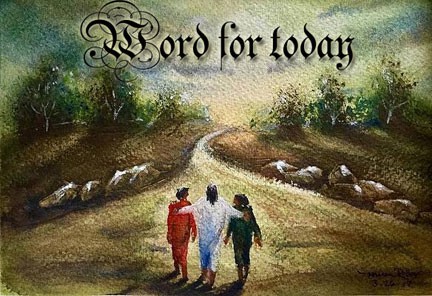Watch
Events
Articles
Market
More
102025 / 27th day of the 7th month 5786
WORD FOR TODAY ”what kind of covenant do you have”: Gen 6:18 "But I will establish My covenant with you; and you shall enter the ark—you and your sons and your wife, and your sons' wives with you.
WISDOM FOR TODAY: Pro 21:17 Pleasure-lovers will suffer want; he who loves wine and oil won't get rich.
Ask the LORD how you can serve HIM better
www.BGMCTV.org




So much has happened while we were away, where to begin… Deuteronomy 13 is given to show us how to recognize false prophets. This past week several people have been trying to fit the events of the Israel peace deal into some timeline of prophecy. Sadly they have shown they have no understanding of the Bible. Any attempt to fit a single event such as a cease fire into an eschatology timeline is futile. As important as this week was for everyone living in the region, this single event has no other markers or clues to consider it prophetic in nature. Sometimes good things happen to Israel because our Creator is watching over His land.



Thought for Today: Monday October 20
I suppose I have been asked it almost more than any other question over the years. What is unforgivable sin? Very often the person who is asking is convinced they have committed it. But notice what Yeshua first said: “All the sins and blasphemies of men will be forgiven them” {Mark 3:28} There is only one exception: the person who deliberately rejects the Holy Spirit’s witness that Yeshua is the Moshiach, sent from heaven to save us from our sins. The only sin YHVH cannot forgive, is the sin of rejecting the Moshiach. Turn to Him in repentance and faith – and He will forgive.



Make a roof for the ark, and finish it to a cubit above...
Genesis 6:16 ESV
A window or a roof? BDB says the word literally means “noon”, but might refer to a roof in the sense of something straight up or sunward. Strong’s says it means a light rather than noon, and so refers to a window.
What is a cubit finished above? Nobody knows what this means either. It could be a covering over the peak to allow openings for ventilation without allowing rain to enter. It could also be a soffit extending a cubit beyond the sides or the height of the rafters or the height of the roof peak.



I share my story on getting into the academic side of the faith in this message. It started by studying a doctrine and learning the most popular bible on earth is literally a fraud. Yes, that's shocking.
https://firstcenturychristiani....ty.net/how-to-pick-a


